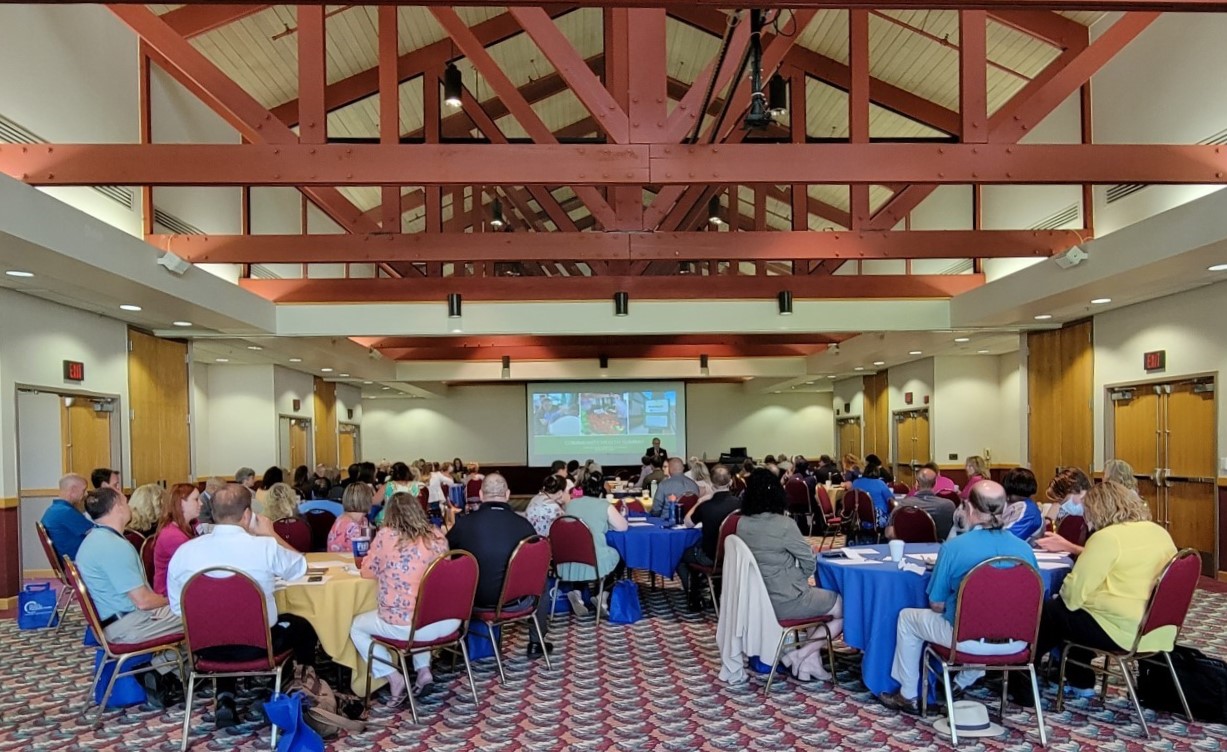In an all-day conference August 9, social service organizations, healthcare providers, community-based organizations, and non-profit groups from Cambria and Somerset counties gathered at the Living-Learning Center on the University of Pittsburgh at Johnstown’s campus for a Community Health Summit, as part of the 2022 Community Health Needs Assessment (CHNA) process.
The summit featured morning sessions presented by local leaders who work in substance use prevention, physical health, early childhood initiatives, behavioral health, and social determinants of health. Speakers explained what their groups have done to help the community through their tireless work over the past three years since the last CHNA was performed.
Once those sessions ended, Lee Ann Lambdin, vice president for health care strategy with Stratasan, took the microphone and presented the Community Health Status for both counties based on publicly reported health data and feedback from the recently completed Community Health Needs Assessment (CHNA) surveys.
A CHNA is a systematic collection, assembly, analysis, and dissemination of information about the health of a community. Its role is to identify factors that affect the health of a population and determine the availability of resources within the community to adequately address those factors. The assessment will help to augment many other community wellness and redevelopment efforts in our region already underway, and provide the supporting data needed for decision making across these multiple initiatives.
The assessment surveyed Cambria and Somerset County residents, health system employees, community based organizations and two different in-person focus groups to compile the necessary information.
Based on all of the responses, Lambdin stated the top issues for 2022 are:
- Substance use
- Obesity
- Mental Health
- Access to insurance
- Socioeconomics
- Violence/abuse/safety
- Child development
The listed issues are in no particular order, but are there to serve as a discussion starting point for the groups. Each table of Summit participants was given one of the seven issues and asked to come up with two goals and two activities that can lead to accomplishing the goals. The goal of the exercise was to facilitate a discussion that could lead to further meetings pertaining to the issues.
Although not on the list of seven issues, accessibility to affordable care is a large barrier for many people, both in the city and in very rural areas. Hyndman Area Health Center (HAHC) is looking to alleviate some of the transportation stress with their new mobile unit that can be taken to communities who experience the largest barriers. The mobile health center has an examination room and, in the future, will be able to provide dental care.
All speakers noted that progress does take time, but aren’t shying away from the work to create healthier communities.
The summit and CHNA were sponsored by Conemaugh Health System, 1889 Foundation, 1889 Jefferson Center for Population Health, and United Way of the Laurel Highlands.

